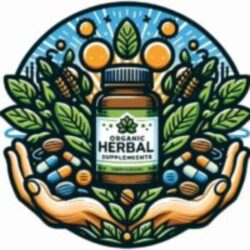Takeaway Points in This Article:
- Why go herbal?
- Pairing herbal and prescription medicines
- How to adapt to this new approach
- The Long-Term Benefits
Why Go Herbal?
Herbal stress relief supplements have been around forever, offering natural ways to keep stress in check. They’re made from plants, roots, and herbs that have calming properties. Unlike synthetic options, these are all about going back to basics with nature’s help. If you’re new to this, it’s about using age-old wisdom to manage stress levels.
Comparing these herbal options to conventional stress treatments is kind of like comparing apples to oranges. They work differently but aim for a similar end goal—better mental well-being. Where conventional meds might tackle stress head-on, herbal alternatives often take a softer approach, gradually building up their effect over time.
These supplements have been used in various cultures across centuries. Imagine monks using valerian root for calmness or ancient India, where ashwagandha was a go-to for balancing moods. There’s something comforting about knowing these plants have stood the test of time.
Why go herbal? That’s a fair question. It might be due to the fewer side effects compared to standard pills or maybe because it’s a gentle nudge towards calmer days instead of an abrupt shove. Plus, there’s a certain peace of mind knowing you’re utilizing a natural remedy. It’s like the slow and steady approach to stress relief.
The Synergy of Herbal Supplements and Prescription Medicines
Pairing herbal stress relief supplements with prescription medications can feel like a balancing act, but it’s more about crafting a seamless partnership. Think of these supplements as a sidekick to the main act that is your prescribed medication. They tag along to offer extra support, enhancing the effects without overpowering them.
Herbs like chamomile or passionflower can complement prescribed treatments by promoting relaxation without altering the primary plan. It’s all about creating harmony rather than conflict. Some herbs might lower anxiety by calming the mind, which can be the perfect pair to those medications addressing chemical imbalances.
But here’s the kicker—communication is crucial. Before adding any herbal supplement to your routine, a chat with healthcare professionals is vital. They can help ensure the herbs won’t clash with your meds and that everything works together like a well-orchestrated symphony.
There are many cases where people have successfully integrated these elements, supporting both body and mind. Clinical studies and anecdotal reports highlight improvements in mood and stress levels when using a combined treatment plan. Real-life examples show this blend helping with resilience, a boost in overall mental well-being.
The goal isn’t to replace medication with herbs but to create a robust game plan for tackling stress. Whether you’re using Valerian root to help you wind down or lemon balm to ease tension, herbal supplements can be a powerhouse ally alongside traditional treatments.
Adapting to New Patterns with Herbal Supplements
When starting with herbal stress relief supplements, patience is your best friend. They work like a slow but steady breeze, gradually building up their calming effects over weeks. It’s not a quick fix but more like a steady journey towards a more relaxed state of mind.
Noticeable changes may come first in your sleep and energy levels. For some, falling asleep becomes easier, or that groggy feeling fades away in the morning. Herbs like lavender and St. John’s wort can support more restful nights, which in turn might make daily energy peaks smoother.
Real-world insights and user experience tell us that everybody’s reaction to herbal supplements is unique. Some folks might feel a difference within days, while others may take longer. Listen to and work with your body; note the changes, and do not rush the process.
It follows that monitoring your progress is essential. Track your sleep patterns and mood shifts to see how these supplements affect you. Adjust as necessary, and don’t hesitate to consult with both herbalists and medical professionals for personalized advice. You need to take control.
Best practices include starting with lower doses… and gradually increasing as your body adjusts. Pairing them with a balanced diet good sleep habits and modest exercise can maximize their benefits, creating a holistic approach to managing stress.
Long-Term Impact and the Role of Herbal Remedies in Stress Management
Using herbal remedies for stress relief is like crafting a long-term strategy for mental well-being. These natural aids help build resilience, teaching and fueling the body with needed nutrient reserves that will enable you to stay calm under pressure. Over time, they support the mind’s ability to handle daily stressors without getting overwhelmed.
Evaluating their effectiveness isn’t just about the immediate feel-good factor. It’s also about the experience of how they fit into your overall wellness journey against stress. Are they improving your patience? Are they helping you to be less snappy at the little things? Are you starting to cope better with life? These are subtle signs of their impact.
Pay attention to potential side effects, too. Natural doesn’t automatically mean completely risk-free. Some may experience mild gastrointestinal hiccups or drowsiness, so staying observant is key. Adjustments in dosage or switching to different herbs might be necessary based on individual responses.
Integrating herbal supplements into your lifestyle isn’t about a complete overhaul. It’s more like enhancing your existing wellness plan. Match these with mindful practices like appreciation for good things that happen in life, avoiding negative attitudes, and meditation will all produce added benefits. The combination of all these can make the stress management approach more comprehensive and effective.
Herbal stress relief supplements offer a valuable complementary path for those managing stress over the long haul. By understanding their role, monitoring their impact, and making informed decisions, you craft a personalized toolkit for navigating life’s inevitable ups and downs. Life will be easier to cope with by working with your body and being in control.
